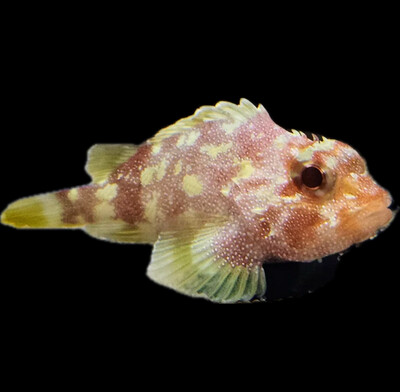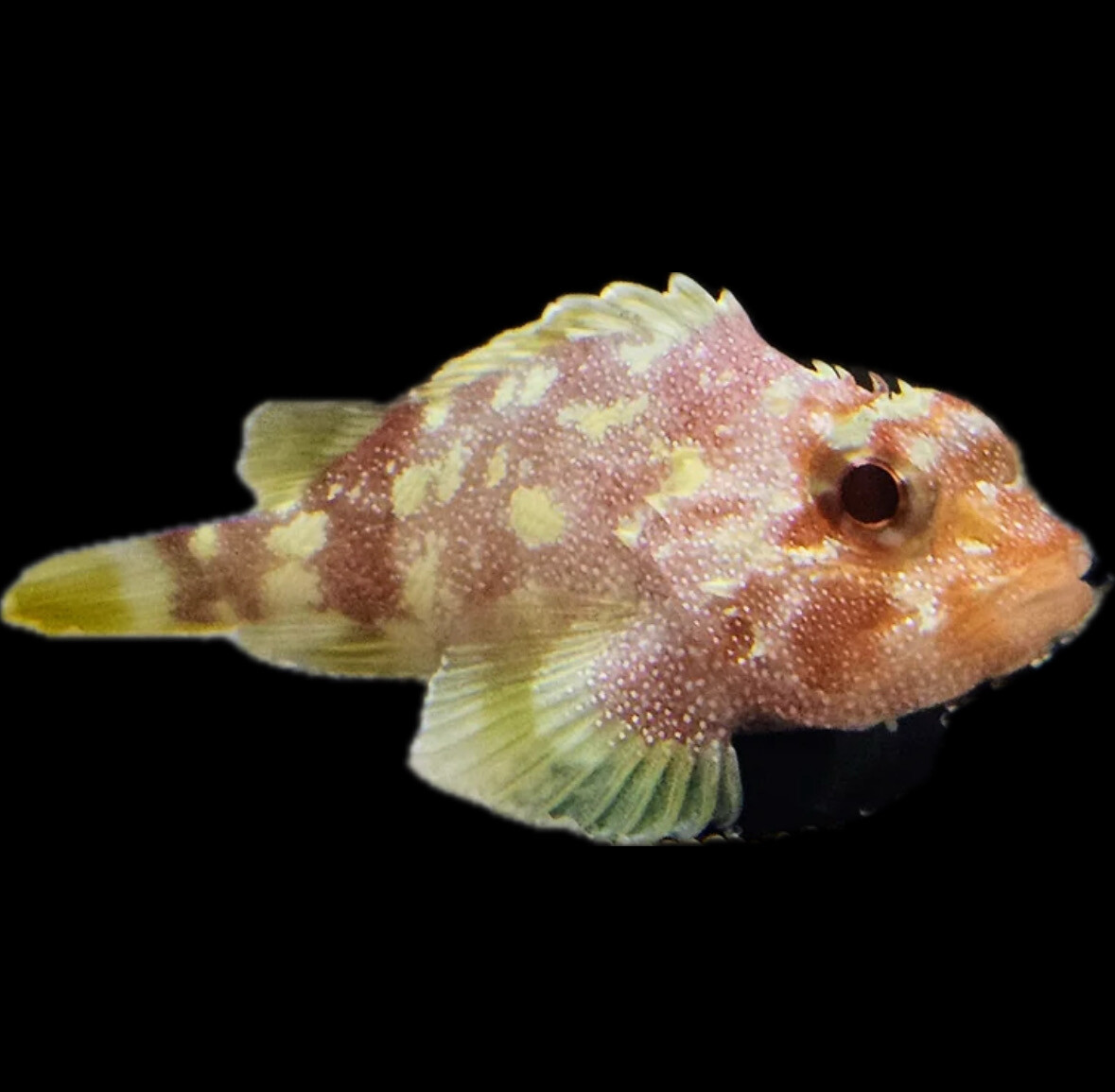Yellowspotted Dwarf Scorpionfish
Care Level: Expert
Main Diet: Carnivore
Compatibility: Aggressive
Reef Safe: No
Adult Size: 2"
Suggested Tank Size: 10+ gallons
The Yellowspotted Dwarf Scorpion, also known as the Lesser Pacific Scorpionfish or False Stonefish, is a fascinating but challenging fish to keep in a home aquarium. It is highly sought after for its unique appearance and interesting behavior. However, due to its venomous nature and complex care requirements, it is only recommended for experienced aquarium hobbyists.
As a carnivorous species, the Yellowspotted Dwarf Scorpion feeds on small fish, crustaceans, and other invertebrates in the wild. In captivity, it requires a diet of live or frozen meaty foods such as small fish, shrimp, and squid. Providing a varied diet is important to ensure proper nutrition and maintain the health of this scorpionfish.
It is important to note that the Yellowspotted Dwarf Scorpion is an aggressive species and should not be kept with other fish or invertebrates. It will actively hunt and prey on anything small enough to fit in its mouth. Therefore, it should be housed in a species-specific tank without tankmates.
Reef tanks are not suitable for the Yellowspotted Dwarf Scorpion. It is not reef safe and may damage corals, polyps, and other invertebrates. It prefers a rocky environment with plenty of hiding places, as it will bury itself in the substrate or hide among rocks to ambush prey.
Due to its venomous spines and specialized care needs, the Yellowspotted Dwarf Scorpion is best suited for a 10-gallon or larger aquarium. It requires excellent water quality, including regular monitoring of temperature, salinity, and water parameters. A matured filtration system with strong mechanical and biological filtration is necessary to maintain optimal water conditions.
In summary, the Yellowspotted Dwarf Scorpion is a captivating but challenging fish to keep. With expert care, a suitable diet, and a species-specific tank setup, it can thrive in captivity. However, due to its aggressive nature, venomous spines, and specialized care requirements, it is only recommended for experienced aquarium hobbyists who are up to the challenge of providing proper care for this unique scorpionfish species.


